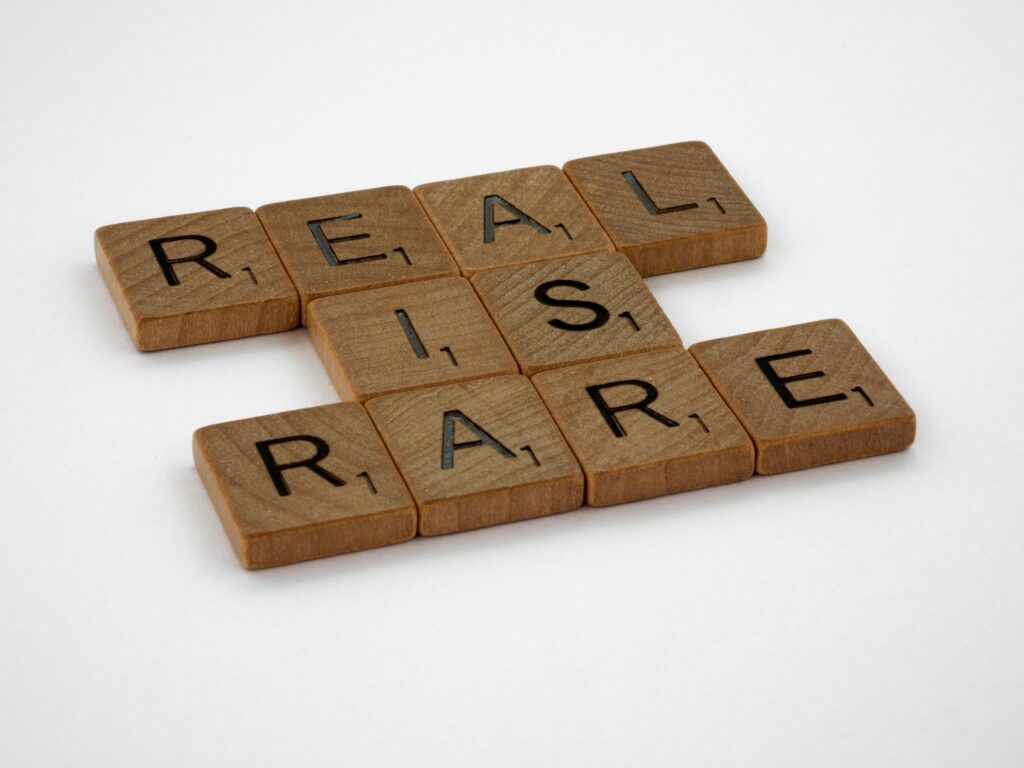Progressive Christianity FAQ
At The Inclusive Christian, we get asked many questions about Progressive Christianity. In addition to what you can find on our What We Believe page and our blog (including this introduction to Progressive Christianity), here’s our FAQ–covering everything from what Progressive Christianity is, to how we view Jesus, Scripture, and salvation.

What is Christianity?
Christianity is a faith rooted in the life, teachings, death, and resurrection of Jesus of Nazareth. Over the centuries, it has taken many forms and interpretations—from empire-aligned orthodoxy to grassroots resistance movements. At its heart, Christianity proclaims Jesus was sent by God to convey the love and grace of God for all, while also calling humanity to live in compassion and community.
Who is Jesus Christ?
Historically, Jesus was a 1st-century Jewish teacher, prophet, and healer. He was often called “Rabbi” by his followers, a term meaning teacher who would often have disciples, or students, following and studying under him. Jesus lived in Israel when it was under Roman occupation. He was ultimately executed by the state on a cross. His followers came to believe—and still believe—that in him, the divine met humanity. Jesus modeled the love and grace of God through a ministry that welcomed the outcast, healed the broken, and challenged the power structures and values of the world. He called people not just to personal piety, but to live in alignment with God’s values: compassion, justice, humility, inclusion, and mercy.
What is Scripture?
Scripture is not a single book, but a library of sacred texts written across more than a thousand years. It contains a wide range of literary styles, theological perspectives, and cultural contexts. The Old Testament (or Hebrew Scriptures) tells the story of the people and nation of Israel. It began thousands of years ago through oral tradition and was written down and shaped by generations of storytellers, prophets, priests, and scribes. The Torah (the first five books) outlines laws and teachings central to Jewish life. The historical books recount Israel’s rise and fall as a nation, while the prophetic writings share the words of those sent by God to challenge injustice, warn of consequences, and proclaim hope.
The New Testament introduces the story of Jesus and the early Church. The four Gospels (Matthew, Mark, Luke, and John) offer distinct yet overlapping portrayals of Jesus’ life and mission. The Book of Acts describes the birth and spread of the early Christian movement. Many of the remaining books are letters (epistles) written by a man named Paul and other leaders to early Christian communities.
Together, these writings form a sacred narrative of God’s evolving relationship with humanity—first through Israel, and then through Jesus. They do not tell the story uniformly or completely, but together they reveal a God who continually expands the circle of grace and calls humanity into a relationship marked by reciprocal love, justice, and mercy. While not a rulebook in the strict sense, Scripture is certainly a guidebook—a collection of wisdom that describes the way of God.
How do Progressive Christians read the Bible?
We take the Bible seriously, not literally. For example, we approach it as sacred, but also human—a product of its time that reflects the cultural assumptions, struggles, and wisdom of ancient communities wrestling with the divine. We read it with heart and mind fully engaged, aware that God continues to speak through and beyond its pages.
Most specifically, progressive Christians read Scripture through the lens of Christ’s love. We believe Scripture is best interpreted in community, with historical context, and in conversation with reason, experience, and tradition. We do not treat every word as equal. The arc of the Bible moves toward liberation, inclusion, and love—and we let that arc guide our understanding.
What’s the difference between Evangelical and Progressive Christianity?
The terms “Progressive” and “Evangelical” describe broad movements within Christianity that differ in theology, priorities, and approach to Scripture and society. While there are exceptions within both camps, here’s a general comparison:
Evangelical Christianity often emphasizes:
- A belief in the Bible as the inerrant and literal Word of God.
- A personal relationship with Jesus as the only path to salvation.
- A central focus on evangelism—spreading the Gospel and “converting” others.
- Clear moral boundaries rooted in traditional interpretations of Scripture.
- A theology that often centers on personal sin, individual repentance, and life after death.
This approach tends to see faith in more black-and-white terms—saved or unsaved, biblical or unbiblical, good or bad, right or wrong. Many evangelicals also align closely with conservative cultural or political values, though this is not universal.
Progressive Christianity, by contrast, emphasizes:
- A view of Scripture that honors its sacredness while acknowledging its human origins and historical context.
- The ongoing revelation of God—not limited to ancient texts or a single tradition.
- Faith as a journey marked by questions, doubt, and spiritual evolution.
- A call to follow Jesus not only by believing in him, but by living out his values—love, grace, justice, and peace.
- Salvation is both personal and communal, concerned with transformation here and now, not just eternity.
Where Evangelicalism often emphasizes orthodoxy (right belief), Progressive Christianity leans toward orthopraxy (right living). We don’t reject the idea of personal salvation, but we see it as inseparable from the healing of the world. Faith without justice is incomplete. Love without inclusion is counterfeit.
We also recognize the diversity within Evangelicalism. Not all evangelicals are fundamentalists, and many are deeply committed to compassion and justice. Likewise, Progressive Christians are not moral relativists; we are deeply rooted in the ethics and example of Jesus. We just believe the Gospel is bigger than a doctrinal test—and that God’s grace is wider than we’ve been told.
Do Progressive Christians believe in sin and repentance?
Yes—though we define them differently than fundamentalist traditions often do. Sin is not simply breaking divine rules; it’s anything that breaks relationships—with God, with others, with creation, or with ourselves. It includes both personal failings and systemic injustices.
Repentance is not about shame. In Greek, the word for repentance (metanoia) means to “change your mind” or “shift your perspective.” When Jesus called people to repent, he wasn’t shaming them—he was inviting them to see differently, to turn from fear and self-interest and toward love and community.
What about traditional doctrines like the Trinity or the Resurrection?
Progressive Christians do not reject traditional doctrines. But we also don’t accept them uncritically. Many core doctrines—like the Trinity (the belief that God is three-in-one) or the dual nature of Christ (Jesus was fully human and fully divine)—were shaped by church councils, like Nicaea, often in response to conflict or heresies. They were human attempts to articulate mystery.
We honor the wisdom of tradition, but we understand it as one interpretation among many. The point of doctrine is not to draw boundaries of who’s in or out, but to point toward the ineffable mystery of God. We approach doctrine with curiosity, humility, and openness.
Do Progressive Christians believe Jesus is the only way?
We believe Jesus reveals the way of love, grace, justice, and reconciliation. But we also believe that God is bigger than Christianity. We do not claim to own the truth. God’s Spirit moves freely, and we trust that people of other faiths—or no faith—may also encounter God. Jesus invites us into a way of living, not just a belief system. And we reject any theology that weaponizes his name to exclude others.
What do Progressive Christians believe about salvation?
We affirm that salvation is both personal and communal. We do believe in eternal life—but we also believe that salvation begins here and now. It looks like healing, reconciliation, justice, and beloved community.
Jesus didn’t only promise a better life after death. He called people to live differently in the present: to love enemies, feed the hungry, care for the poor, and dismantle systems of oppression. That’s salvation, too.
What about LGBTQ+ people? Can they be Christian?
Absolutely. LGBTQ+ people are fully beloved by God. Their identities are not sinful or broken—they are sacred and good. Any theology that says otherwise is rooted in fear, control, or a misreading of Scripture.
And this welcome extends beyond sexuality and gender. Progressive Christianity insists that all those who have been marginalized—undocumented immigrants, the desperately poor and unhoused, addicts, refugees, even our enemies—are not beyond God’s embrace. If we believe God includes us, then we must believe God includes them.
Do you believe Christianity has done harm?
Yes—and it’s vital that we acknowledge it. The Church has justified war, slavery, colonialism, patriarchy, racism, and queerphobia. It has too often been a tool of empire instead of a vessel for liberation. Progressive Christianity doesn’t hide from this history. We seek to confess it, learn from it, and participate in a reformation of the faith—one rooted in truth, accountability, and grace.
Can I still be Christian if I don’t believe in everything?
Yes. Faith is not about intellectual assent to a checklist of doctrines. It’s about relationship—with God, with others, with yourself. Doubt is not a weakness; it’s often the soil of deeper faith. If you’re questioning, wounded, curious, skeptical, or recovering from toxic theology—there is space for you here. Faith isn’t about having all the answers. It’s about following the One who embodies love.
What do you mean when you say you want to “reclaim” the Gospel, or “reclaim” the faith?
When we say we want to reclaim the Gospel, we mean it literally—take it back from those who’ve twisted it. Too often, what passes for “Christianity” in public discourse is a version that bears little resemblance to the life and teachings of Jesus. The Gospel has been hijacked by loud voices who preach fear instead of love, exclusion instead of embrace, control instead of compassion.
Reclaiming the faith means calling out this distortion for what it is: a corruption of the Good News. Jesus didn’t come to condemn the world but to heal it. He didn’t create purity codes or uphold religious gatekeeping—he tore them down. The Gospel is not about enforcing conformity. It’s about liberating people from systems that crush the soul.
As such, we want to reclaim a faith that is rooted in love and lived out in justice. A faith that tells the truth about history and aligns itself with the hurting and the hopeful, not the powerful and the proud. We are not interested in a sanitized, status-quo Christianity that props up empires or political agendas. We want the disruptive, healing, boundary-breaking faith of Jesus.
To reclaim the Gospel is to refuse to surrender it to those who would weaponize it. It’s to say, “This story still matters. This message still liberates. This Jesus is still worth following. And the Church—though deeply flawed—can still be a force for good. But only if we tell the truth, embrace the marginalized, and live with the courage to love without limits.”
This FAQ is a living document. It reflects the values and convictions of The Inclusive Christian and will grow as we grow. If you have a question you’d like us to answer, let us know. We’re listening.
